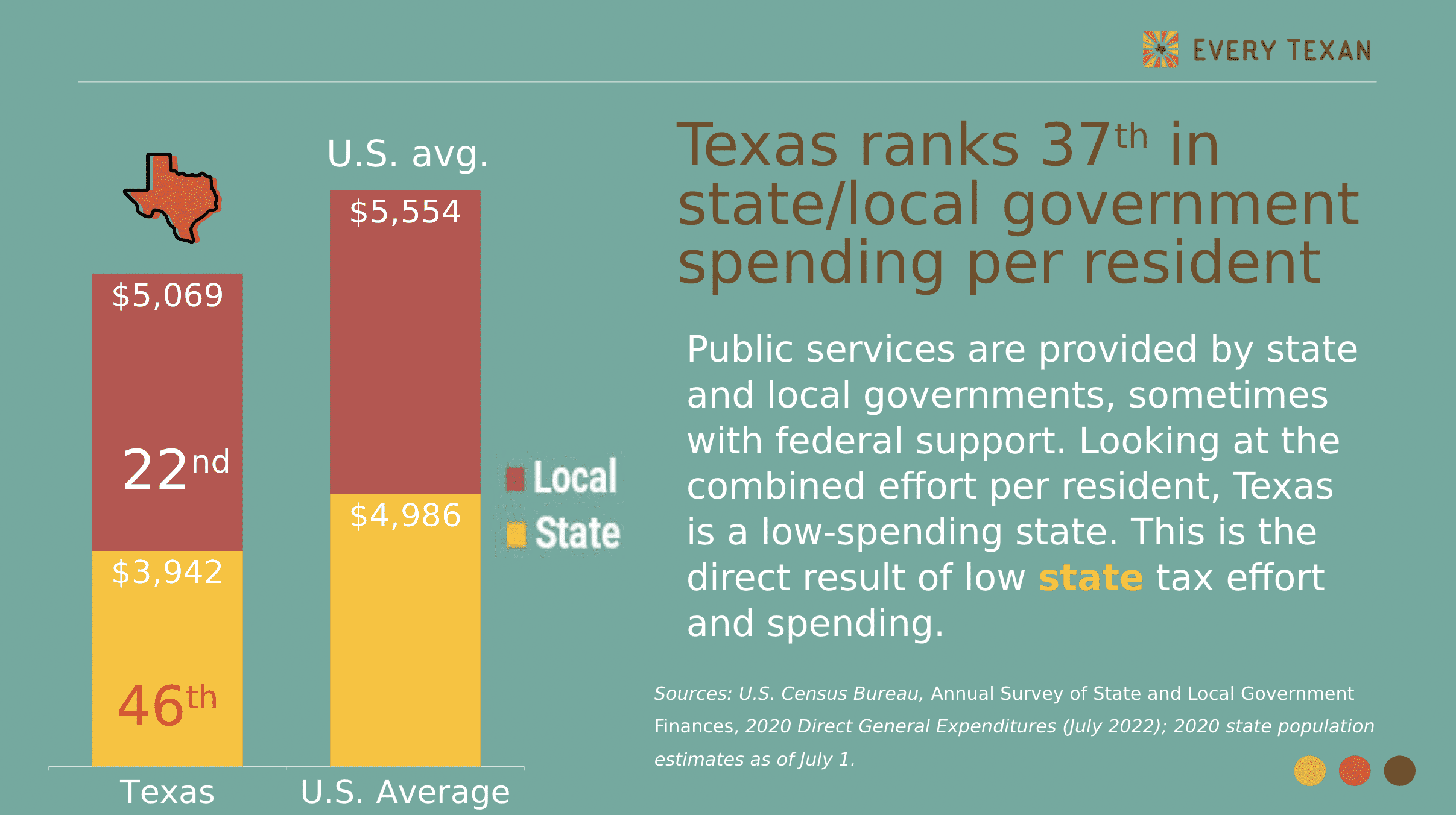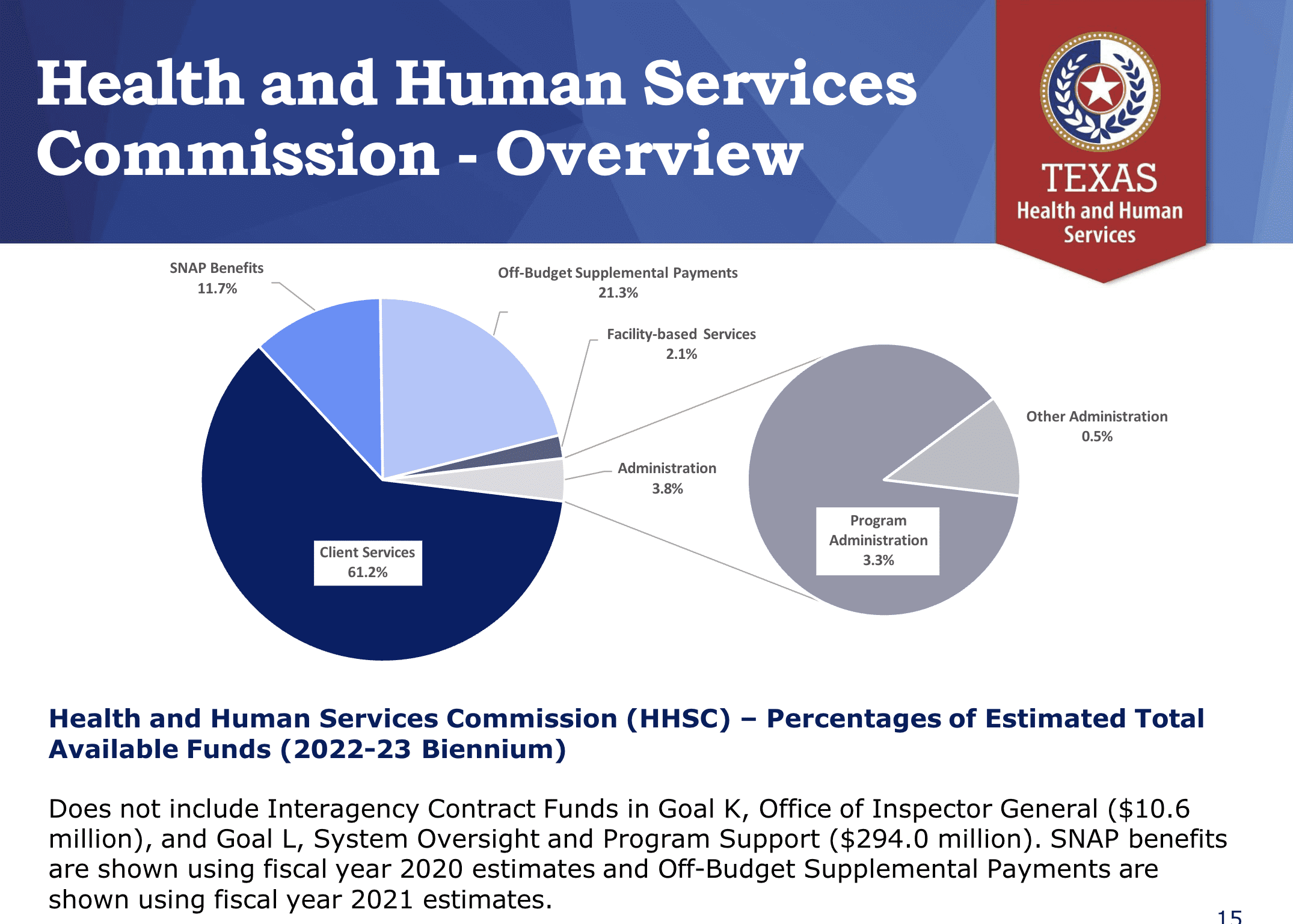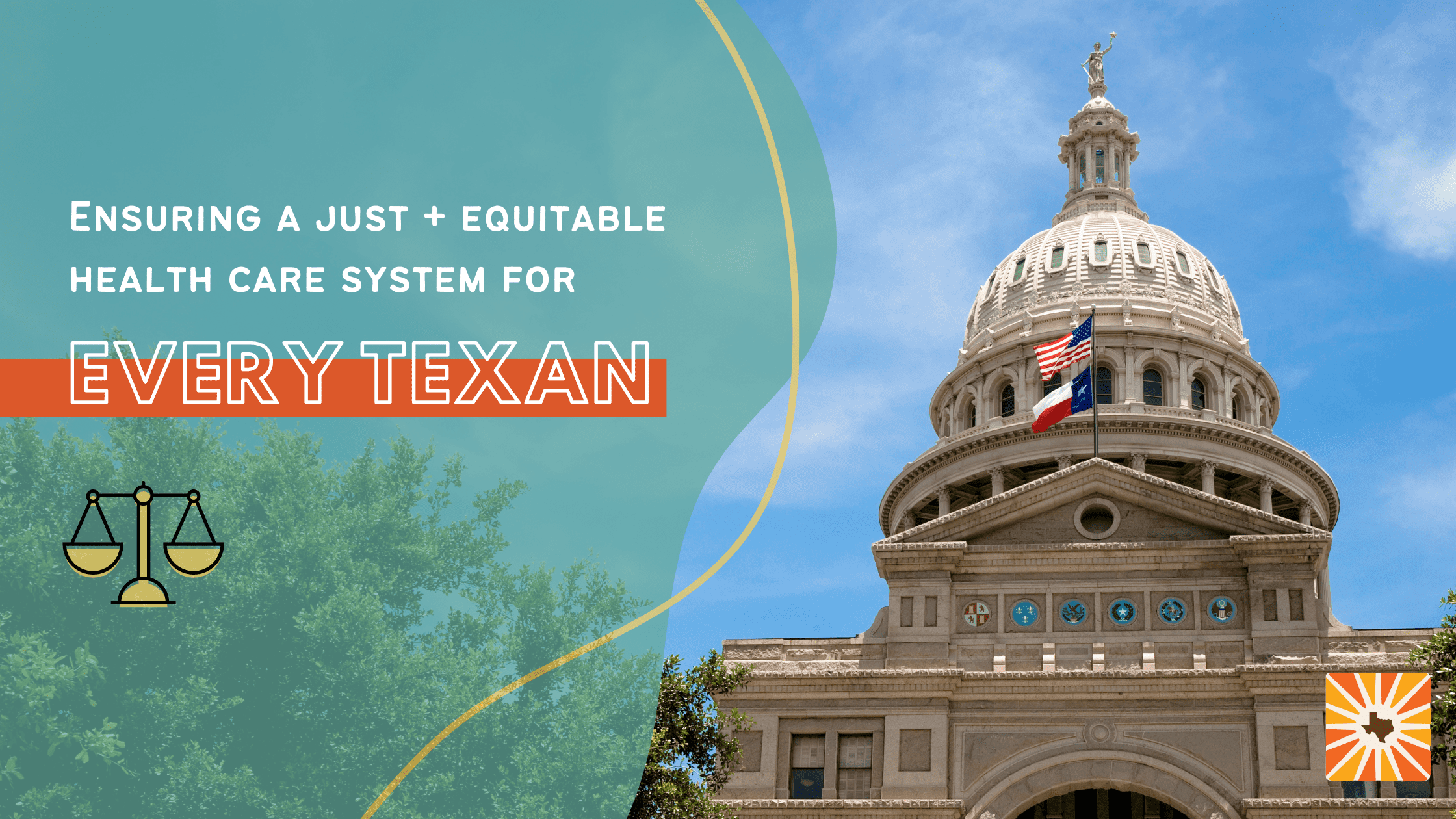View this testimony as a PDF here.
Every Texan (formerly CPPP) appreciates the opportunity to comment on proposed funding for the Texas Health and Human Services Commission (HHSC) in the filed version of HB 1 for the 2024-2025 biennium.
The Benedictine Sisters of Boerne, Texas, founded Every Texan (formerly CPPP) in 1985 to advance public policy solutions for expanding access to health care. We became an independent, tax-exempt organization in 1999. Today, we prioritize policies that will measurably improve equity in and access to health care, food security, education, and financial security. We are based in Austin, Texas, and work statewide.

Based on the HHSC’s Updated Exceptional Item Request for FY 2024-25, Every Texan thanks the Chair and Committee for including funding for these items in the filed bill:
- Strengthened per-child funding and method of finance for Early Childhood Intervention (ECI);
- Funding to meet growing demand for Healthy Texas Women and Family Planning services;
- Funding to support the Better Birth Outcomes services detailed in the HHSC LAR;
- Funding to maintain HHSC 2022 pay increases for critical staff into the 2024-25 biennium; and
- Separate allocation for salary adjustments for all state employees.
- Details (Article IX Section 17.17) on some $6 billion in supplemental appropriations needs expected to complete the current biennium. That list includes $148.9 million to start the broad-based state employee pay increase in June 2023.
Every Texan further encourages the Committee to adopt these funding priorities not reflected in the filed bill:
- Exceptional Item #1: fund inflation/cost increases in Medicaid and CHIP.
- Exceptional Items #2 and #5: HHSC has retained Critical Workforce Needs on its revised exceptional item list. While the LBB summary of the bill indicates that $181.7 million All Funds ($90.6 million GR) out of the Senate’s $353 million in total 24-25 Salary Adjustments for HHSC is to maintain HHSC 2022 pay increases for eligibility staff, it is not clear whether the funding need for both 2022-2023 increases as well as 2024-2025 have been addressed.
HHSC experienced significant delays in processing Medicaid and SNAP eligibility in 2022. With the need to restart recertifications in April 2023, it is critical to maintain HHSC staffing and continue rebuilding to avoid loss or gaps in health coverage for eligible children and pregnant mothers. It is further critical to eliminate delays in SNAP benefits at a time of high inflation when working Texans are struggling to keep families fed all month. Because of this critical need, Every Texan urges the Legislature to prioritize both #2 and #5 Support the end of Continuous Coverage.
- Exceptional Item #10: Consolidated rate request. Every Texan appreciates Texas HHSC’s acknowledgement of the profound need for substantial increases to Community Attendant Services rates. We place this priority before Exceptional Items #6 and #7, because the well-being of frail seniors and Texans with disabilities is grievously undermined by the low Medicaid pay to attendants, which is barely more than half the wages they could make in fast food or big box store employment. Further, most Medicaid attendants have no health insurance, sick leave, or other paid leave.
Every Texan supports increases for wellness visits for kids and other office visits; and birth-related and women’s health surgeries. However, providers in these categories today have far more adequate Medicaid payments than community attendants, and also generally have health coverage and leave benefits as part of their compensation packages. - Exceptional Items #3, 4, and 8: Improve mental health services; expand state hospital capacity; and DSHS EI#8 to reimburse travel costs for the Maternal Mortality and Morbidity Review committee.
Other Every Texan Priorities
- Every Texan and the organizations of the Children’s Health Coverage Coalition strongly support funding to restore modest statewide grants to community-based organizations and health care providers to build Community Partners Program participation outside the major urban centers, in order to benefit more rural Texans and ease the HHSC staff workload. $15 million in funding will match the budget allocated in 2000-2001 for Texas’ record-setting success in rolling out the CHIP program.
- Every Texan continues to strongly support Texas accepting federal funds to provide Medicaid coverage to adults up to 138% FPL (the same income cap applied to children currently). Only 10 other states have failed to accept the 90% federal match for this coverage, and this policy has been fiscally advantageous to the states now covering their low-wage workers.
- Every Texan also strongly urges the 88th Legislature to end the outdated exclusion of Legal Permanent Resident adults — including pregnant women — from Texas Medicaid. Only six other U.S. states share this unconstructive policy.
Expected Adjustment: It appears that the filed HB 1 assumes the end of the 6.2 FFCRA percentage point increase in FMAP that Texas has received since March 2020, but has not yet reflected the impact of the 2023 calendar year phase-down in Medicaid enhanced FMAP adopted in the December 2022 Consolidated Appropriations Act, 2023, from 6.2 points to 5, 2.5 and 1.5 on a quarterly basis.

Shift of Medicaid costs to local governments and providers
In the broader context of the state budget and its effects on local government taxes, we note the 21.3% share of Texas HHSC spending which is now off- budget, as local governments and local/regional provider taxes (LPPFs) are relied on to fund critical supplement Directed Payments to Medicaid providers, in place of state GR funding of adequate rates. Like reduced state formula funding for K-12, this trend to local funding of Medicaid contributes to increased need for local taxes.
For additional information, contact Anne Dunkelberg at dunkelberg@everytexan.org.
